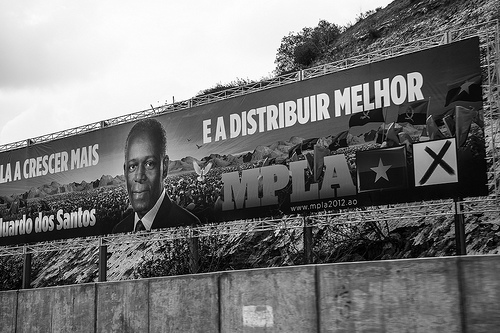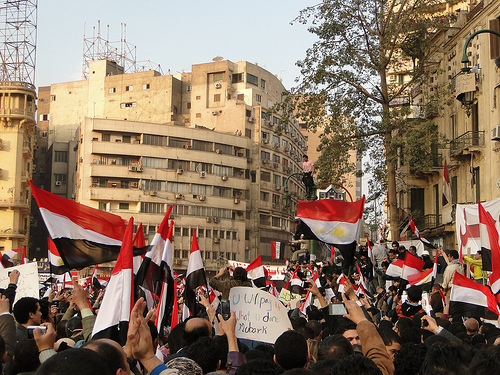
President Jose Eduardo Dos Santos’ MPLA won another election in 2012, despite protests from the opposition about the conduct of the poll. Photo credit: Oscar Megia (via Flickr, Creative Commons license).
Forbes announced last week that the eldest daughter of Angolan President Jose Eduardo Dos Santos is Africa’s first female billionaire. Though much is unknown about Isabel Dos Santos’ climb to this elite club, her status is indicative of the opportunities and challenges facing Angola.
For much of its history since independence in 1975, this African state has been wracked by armed conflict, grinding poverty, and bad governance. In short, Angola was a failed state for much of the not-too-distant past.
In the case of this lightly settled, oil-rich country, external factors were exceedingly important in Angola’s decay. The country suffered as the site of a proxy war between the Soviet Union and the United States, and involved other states like Cuba and South Africa. Prior to the Cold War meddling, the Portuguese – like the Belgians elsewhere in Africa – did a poor job preparing the colony for independence.
When the Portuguese left in relative haste, the Angolans initiated a 27-year civil war that also had significant connections with the global geopolitical struggle between Moscow and Washington. These dark decades can be summed up by a long list of depressing words and phrases: refugees, landmines, official thievery, food insecurity, bombed-out bridges, and empty schoolhouses.
After the death of rebel leader Jonas Savimbi in 2002, Angola’s fortunes have begun to improve. First and foremost, Angola has recorded a decade of peace. Economic growth has been impressive, even if concentrated in the export-oriented energy sector. Transportation has improved within the country, helping the country’s many small-scale farmers get their goods to markets. Many refugees have returned from neighboring countries.
Now, back to Africa’s first female billionaire. Here I provide an excerpt from the Forbes story, which includes a pertinent quote from the political scientist Peter Lewis:
How did a 40-year-old woman who started out with just one restaurant come into such a vast fortune? . . . “It’s clear through documented work that the ruling party and the President’s inner circle have a lot of business interests. The source of funds and corporate governance are very murky,” Lewis explained. “The central problem in Angola is the complete lack of transparency. We can’t trace the provenance of these funds.”
Lewis is careful to state that he cannot authoritatively comment on the particulars of Isabel Dos Santos’ wealth. The people who can comment on her wealth, likely do not intend to do so.
Even so, there are indicators that Angola’s ruling party has been somewhat less corrupt in recent years. New investments have flowed into the country. And, Angola has even remade itself as an immigration destination for financial crisis-weary Portuguese.
Yet, there are limits to the gains in governance. According to Freedom House, Angola remains an authoritarian state, despite holding elections. President Dos Santos has led the country since 1979, and looks set to do so for many more. The political opposition remains weak. And given the country’s continued reliance on oil exports (with the heavy involvement of the Chinese state), this is not a good mix for broad-based development. Angola is no longer a failed state, but its foundation for the future is uncertain at best.


